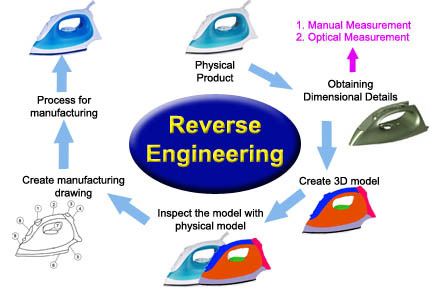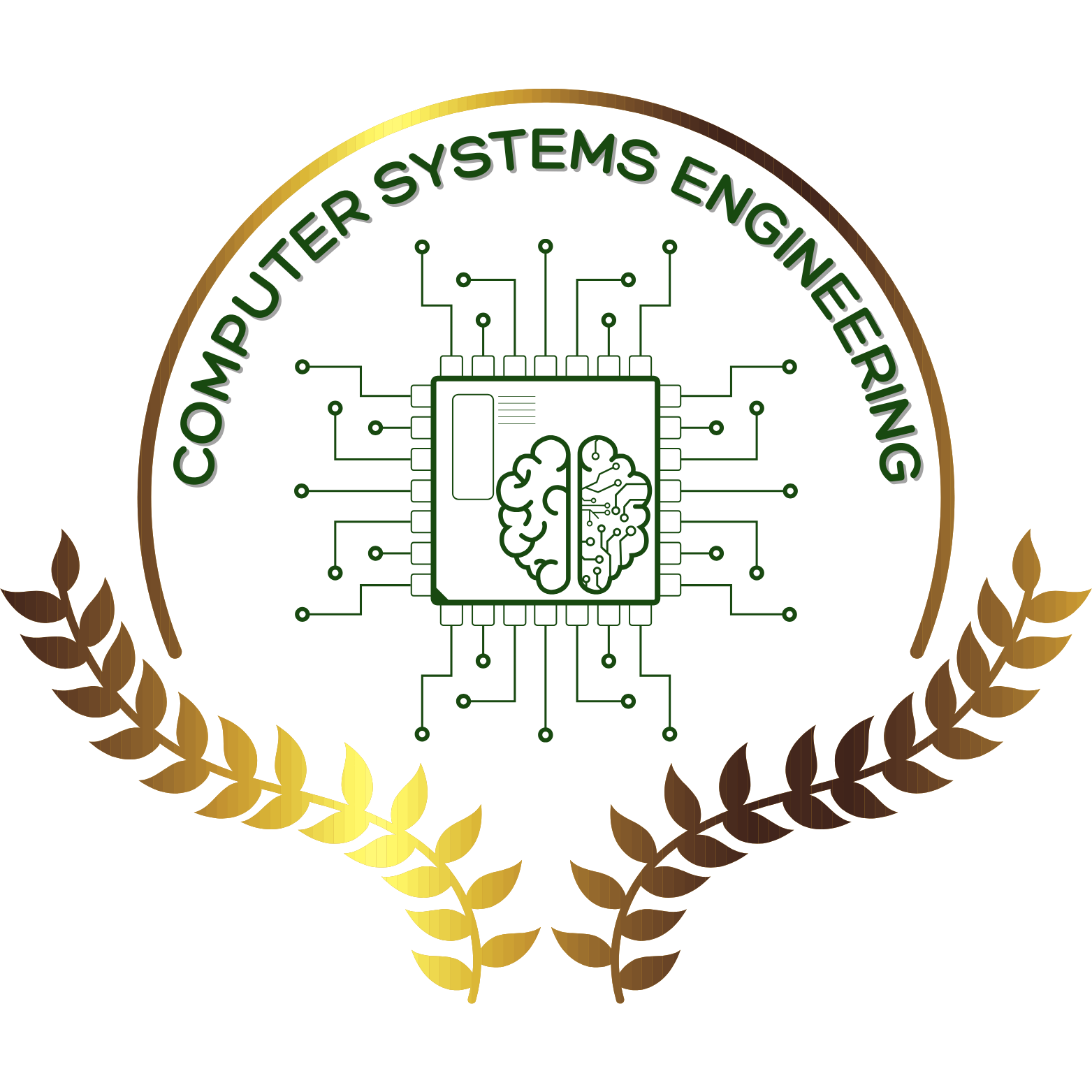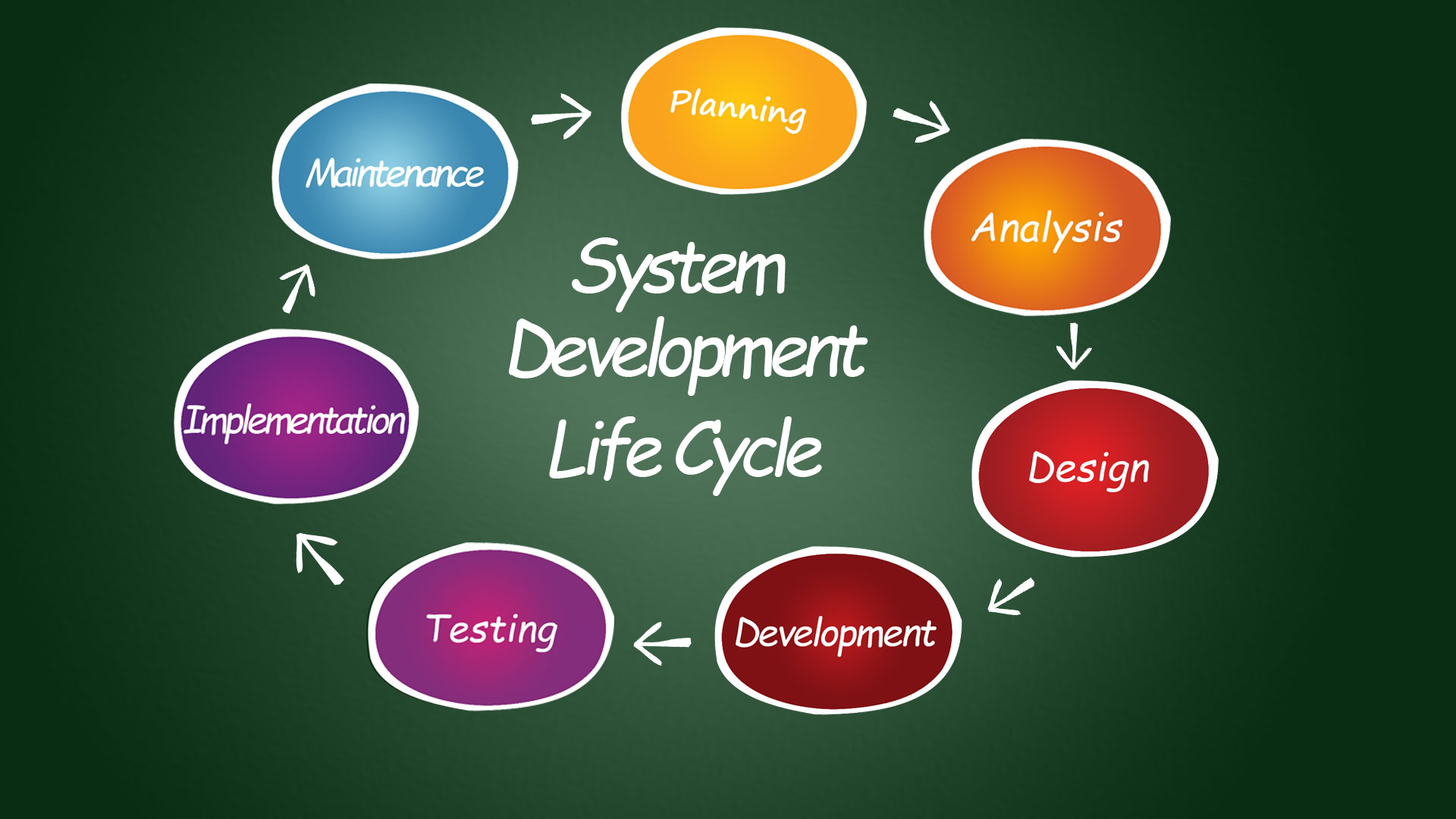Search results: 217
- Teacher: Hadeel Abdel Megied Mohamed Sirag El Deen
- Teacher: Manar Awad Ahmed Awad Mohamed
- Teacher: Hisham El Shishtawi
- Teacher: Menna-Tallah Kamal Korany Osman
- Teacher: Moataz Mohamed Abdel Hafez El-Kholy
- Teacher: Youmna Mohamed Mahmoud Abdelhadi
- Teacher: Amr Mohamed Mahmoud Ageez
- Teacher: Nader Nabil El Bokl
- Teacher: Shereen Wagdy Arafat Mousa

Overall Aims of the Course
This course aims at introducing the students to research in terms of concepts, processes and applications.
Intended Learning Outcomes
By the end of this course, the students should be able to:
Knowledge and Understanding
- Understand the fundamental structure of research
- Understand steps in the methodical processes that lead to valid and reliable results
Intellectual Skills
- Select and define appropriate research problem and parameters
- Read and select appropriate literature
- Prepare a research proposal
- Interpret data
- Conduct research on a particular subject
Practical Skills
- Collect data on a chosen research topic
- Design a step by step framework for the conduction of research
- Analyze data statistically and non-statistically
General and Transferable Skills
- Apply the concepts and skills gained in this course to increase their awareness of English as a language whilst using it in their future academic studies as well as career
- Teacher: Maha Abd Elhakeem Hassan
- Teacher: Dr.Rania Abdel Baky Ali
- Teacher: Ebtihal Abdelaziz Ahmed Helal Helal
- Teacher: Dr. Safa'a Ahmed Saleh
- Teacher: Hebat Allah Adel Shaaban Hassan
- Teacher: Shereen Effat Mostafa Nour Eldin
- Teacher: Noha Faisal Mohamed Abdelmotagally
- Teacher: Dr.Naira Hassan Abdu Mohamed
- Teacher: Dr.Nagla Ibrahim Saleh al-Hadidy
- Teacher: Dr.Samia Kara
- Teacher: Nourhan Khaled Ahemd
- Teacher: Maha Mamdouh Mohamed
- Teacher: Dr.Ghada Mohamad Al-Akhdar
- Teacher: Nourhan Mohamed El arabie
- Teacher: Dr.Nagwan Mohamed Maged Abdulhameed Ezz
- Teacher: Noureldin Mohamed Nour Eldin
- Teacher: Toqa Mohamed Waeil Alkaras
- Teacher: Dr.Islam Muhammed Alsawy
- Teacher: Dr.Soha Raafat
- Teacher: Dr.Heba Samir Mahmoud
- Teacher: Amani Wageh Abd Al-Halim
- Teacher: Hala Yousry Darwish

Reverse Engineering course covers the following points in detail:
- Achieve a wide understanding of product development processes.
- Understand the Reverse Engineering (RE) Methodologies.
- Discover and prioritize the problems in the existing process.
- Disassemble products and specify the interactions between its subsystems.
- Discover the functionality of different parts and analyze their material.
- Understand Computer-Aided RE Technologies.
- Strengthen the theoretical findings through practical activities.- Teacher: Sameh Ahmed Salah El-Dein
- Teacher: Diaa Hafez
- Teacher: Sherine Ibrahim Bishara
- Teacher: Maysa Mahmoud Fathy Omar
- Teacher: Dr.Nabila Nowaira
- Teacher: Prof.Dr.Hafez Radi
- Teacher: Omnia Reda Mazroa
- Teacher: Mohamed Salah Eldin Shibat Elhamed
- Teacher: Prof.Nahed Sobhi abd elnour
- Teacher: Mona afifi
- Teacher: Dr. mohamed el said hassan
To acquaint the students with the political, social, intellectual and ideological development of European societies from the Renaissance to the end of World War II.
- Teacher: Maha Abd Elhakeem Hassan
- Teacher: Somaya Abdul Wahab Shehata
- Teacher: Hebat Allah Adel Shaaban Hassan
- Teacher: Dr.Nagla Ibrahim Saleh al-Hadidy
- Teacher: Christina John Mina Awad
- Teacher: Nourhan Khaled Ahemd
- Teacher: Nadeen Khaled Mohamed Kamal
- Teacher: Maha Mamdouh Mohamed
- Teacher: Dr.Kholoud Mansour Khalifa
- Teacher: Dr.Ghada Mohamad Al-Akhdar
- Teacher: Dr.Soha Raafat
- Teacher: Dr.Mustafa Riad
- Teacher: Salma Samer Ahmed Morad Hanno
|
This module is designed to provide students with a thorough understanding of the robot technology including definition, classification, applications, components, and specification characteristics, robot selection, robot geometry and workspace. Homogeneous transformation matrix, robot kinematic-modeling, and robot motion planning.
|
- Teacher: Sameh Ahmed Salah El-Dein
- Teacher: Ahmed Badawy
- Teacher: Amgad Bayoumy Aly
- Teacher: Diaa Hafez
- Teacher: Maysa Mahmoud Fathy Omar
- Teacher: Yaser Mohammed Abd El-Halem
- Teacher: Dr.Nabila Nowaira
- Teacher: Prof.Dr.Hafez Radi
- Teacher: Prof.Nahed Sobhi abd elnour
- Teacher: Mona afifi
- Teacher: Dr. mohamed el said hassan
LU Code : TR 400 Summer 2023
Module Title : Simultaneous Translation
Level : 4
Credit hours / Points : 3
Prerequisites : TR 100, TR 101, TR 300, TR301
1 – Overall aims of course
This module aims to have students grasp the fundamental concepts and techniques common to simultaneous interpretation, apply the skills and techniques of simultaneous interpretation and interpret in the simultaneous mode on general and semi-specialized topics. Over a period of 15 weeks, besides theoretical lecturing, students are exposed to hands-on experience of simultaneous and conference interpretation, through simulations on different topics , like for example, UN speeches related to its SDGs.
2 – Intended learning outcomes of course (ILOs)
On completion of this unit you should be able to:
- Demonstrate the following knowledge and understanding:
· Detailed knowledge and systematic understanding of the issues, terms and skills related to simultaneous translation
- Demonstrate the following skills and abilities
Perform accurate simultaneous interpretations under stressful conditions and resolve problems arising from oral translations..
Learning Materials:
-A Dictionary of Modern Written Arabic by Hans Wehr (Arabic –English) Edited by J. Milton Cowan.
-A Dictionary of Diplomacy & International Affairs ( English-French-Arabic) by Samouhi fawq El'Adah. Published by Librairie du Liban.
-A Dictionary of Modern Political Idioms ( English-French-Arabic) by Magdi Wahba & Wagdi Ghali.
-Austermuhl, F. 2001. Electronic Tools for Translators. Manchester: St Jerome.
-Barkhudaruf, L. 1993. "The Problem of th Unit of Translation", in P. Zlateva (ed.) Translation as Social Action. London: Routledge, pp. 39-46.
-Amos, F. 1973. Early Yjeories of Translation. New York: Octagon Books.
-Baker, M. 1992. In Other Words: A Coursebook on Translation. London and New York: Routledge.
-Baker M. (ed.). 2008. Routledge Encyclopedia of Translation Studies (3rd ed.). London: Routledge.
-Basil H. 2001 Teaching and Resarching Translation. Essex: Pearson Education.
-Bassnett S 1980/2002 Translation Studies. London:Routledge.
-Baily M (ed.) 1997 The Proceure of The Security Council (3ed). Oxford: Oxford Press.
-Beaugrande, R. de and W. Dressler. 1981. Introduction to Text Linguistics. London: Longman.
-Bush, P. 1997. "The Translator as Reader and Writer", Donaire 8: 13-18.
-Campbelle, S. 1998. Translation into the Second Language. London: Longman.
-Cartellieri, C. "The Inescapable Dilemma: Quality and/or Quantity in Interpreting." Babel 4, 1983.
-Carter, R. And W. Nash. 1990. Seeing Through Language: A Guide to styles of English Writing. Oxford: Basil Blackwell.
-Gentile, Adolfo, Uldis Ozolins & Mary Vasilakakos. Liaison Interpreting: A Handbook. Melbourne: Melbourne University Press, 1996.
-"Language Interpretation". 2011 Retrieved from www.wikipedia.org/wiki/Language_interpretation on 15/9/2011.
-Lochner, R.K. "Conference Interpretation and the Modern World." Babel 3, 1976.
- Los Angeles Chinese Learning Center. 2011."Memory Training in Interpreting". Retrieved from www.chinese-school.netfirms.com on 15/9/2011.
-Simons S. 2002 Targeting Iraq: Sanctions and Bombing in U.S. Policy. (London: Saqi Books).
- ------- 1996 Gender in Translation: Cultural Identity and the Politics of Translation. (London: Routledge).
-Thomas, J. 1995. Meaning in Interaction: An Introduction to Pragmatics. London: Longman.
-Verschueren J. 1999 Understanding Pragmatics. (London: Arnold)
-Vincent A. (ed.) 1997 Political Theory: Tradition and Diversity. (Cambridge: Cambridge University Press).
ابراهيم السامرائي: معجم و دراسة في العربية المعاصرةز بيروت, مكتبة لبنان, 2000.
-ابن منظور: لسان العربز القاهرة, دار المعارف.
-السعيد بدوي: مستويات اللغة العربية في مصر. القاهرة, دار المعارف, 1973.
-محمد عناني: فن الترجمة. القاهرة, لونجمان, 1993.
--- : مرشد المترجم. القاهرة, لونجمان, 2000
Useful Tools:
Software: Adobe Audition
Laboratory
Assessment Scheme:
- The students will be assessed at the final- and mid-term examinations in simultaneous interpreting from and into English.
- The exams and tasks will comprise speeches on a variety of subjects in different registers. The speeches will be prepared to a standard commonly encountered by professional interpreters and delivered as if by practiced speakers. Speeches will be approximately 10 minutes.
Assessment pattern:
Final: 30%
Midterm: 20%
Coursework: 50%
-Tasks 50% (two Tasks; about 6-8 minutes each; one from English into Arabic before the mid and one from Arabic into English before the final; 25 marks each)
Learning Unit Contact Hours Per-Week:
Lecture: 1.5 hours
Extra Tutorial: 3 hours
Total Contact hours per semester: 21 hours
Total Other study hours per semester: 42 hours
Total Study Hours per semester: 63 hours
Module Leader: Dr Safa’a Ahmed
- Teacher: Dr.Rania Abdel Baky Ali
- Teacher: Dr. Safa'a Ahmed Saleh
- Teacher: Hebat Allah Adel Shaaban Hassan
- Teacher: Dr.Nagla Ibrahim Saleh al-Hadidy
- Teacher: Nourhan Khaled Ahemd
- Teacher: Amr Mohamed Abdel Hamid Abdel Razik
- Teacher: Noureldin Mohamed Nour Eldin
- Teacher: Dr.Soha Raafat

This
module is an advanced treatment of software development techniques. Here the
student will learn aspects of working with a large team on large projects to
produce quality software products on time and within budget. More specifically, this module also enables
students to acquire the knowledge and skills needed to the sizing, estimation
and planning control of large projects, verification and validation strategies
as well as techniques for rapid system development.
- Teacher: Ahmed Ayoub
- Teacher: Diaa Hafez
- Teacher: Dr.Samer Ibrahim Mohamed
- Teacher: Maysa Mahmoud Fathy Omar
- Teacher: Mai Mohamed Mahmoud Mohamed
- Teacher: Youmna Muhammad Abd Elmoneim
- Teacher: Dr.Nabila Nowaira
- Teacher: Prof.Dr.Hafez Radi
- Teacher: Mohab Safwat Abdel Latif
- Teacher: Dr.Ehab Salaheldin Awad
- Teacher: Yomna Sameer Abd Rabbo Elkho
- Teacher: Prof.Nahed Sobhi abd elnour
- Teacher: Mona afifi
|
This module is designed to provide students with the understanding of modern concepts and trends in Quality Control. The utilization of statistical techniques used in quality control. Data presentation and statistical analysis. Charts for process control. Process capability assessment, sampling plans for acceptance inspection, and reliability models and acceptance testing. Quality improvement philosophies, total quality, and quality systems and standards. Quality improvement process which includes manufacturability with no defects and thus improvement of the environment and the economic well-being of the organization.
|
- Teacher: Sameh Ahmed Salah El-Dein
- DR.Hamdy Hussein: Youssef Amr Mahmoud Naga
- DR.Hamdy Hussein: Alshimaa Ayman EL-Said
- DR.Hamdy Hussein: Ali Bahig Ali
- Teacher: Diaa Hafez
- Teacher: Maysa Mahmoud Fathy Omar
- Teacher: Dr.Nabila Nowaira
- Teacher: Prof.Dr.Hafez Radi
- DR.Hamdy Hussein: Omnia Reda Mazroa
- Teacher: Prof.Nahed Sobhi abd elnour
- Teacher: Mona afifi
- Teacher: Dr. mohamed el said hassan

|
This module is designed to provide students with a thorough understanding of the basic components of stress analysis necessary for analyzing mechanical elements. These include tension, bending, shear, torsion, and combined stresses. Determination of principal stress in structures. It is necessary to develop mathematical relationships in a rational and logical manner, and clearly indicate the conditions that applied safely to the analysis and design of actual engineering structures and machine components.
|
- Teacher: Sameh Ahmed Salah El-Dein
- Teacher: Amgad Bayoumy Aly
- Teacher: Diaa Hafez
- Teacher: Ahmed M. Omar
- Teacher: Maysa Mahmoud Fathy Omar
- Teacher: Yaser Mohammed Abd El-Halem
- Teacher: Dr.Nabila Nowaira
- Teacher: Prof.Dr.Hafez Radi
- Teacher: Mohamed Salah Eldin Shibat Elhamed
- Teacher: Mina Sameh Ghobrial
- Teacher: Prof.Nahed Sobhi abd elnour
- Teacher: Mona afifi
- Teacher: Dr. mohamed el said hassan

This
course emphasizes the system analysis and design techniques for software
project development. It includes: setting Information System (IS) project goals, developing work
plans and methods to achieve those goals, and measuring progress against a
project plan. Analyze a business need
for information and develop an appropriate strategy to solve the problem and
provide the required information service. Prepare and use various information
gathering techniques for eliciting user information requirements and system
expectations. Construct and interpret a variety of system description
documents, including data flow diagrams, entity–relationship diagrams,
Structured English, structure charts, use-case diagrams, ... etc. The student
will design and prototype a system.
- Teacher: Ahmed Ayoub
- Teacher: Diaa Hafez
- Teacher: Dr.Samer Ibrahim Mohamed
- Teacher: Dina Magdy Abd Elkader Elsayed
- Teacher: Maysa Mahmoud Fathy Omar
- Teacher: Mai Mohamed Mahmoud Mohamed
- Teacher: Hussien Mostafa Said El-Kholy
- Teacher: Youmna Muhammad Abd Elmoneim
- Teacher: Manal Mustafa Ali Mustafa
- Teacher: Dr.Nabila Nowaira
- Teacher: Prof.Dr.Hafez Radi
- Teacher: Dr.Ehab Salaheldin Awad
- Teacher: Yomna Sameer Abd Rabbo Elkho
- Teacher: Prof.Nahed Sobhi abd elnour
- Teacher: Mona afifi
The course introduces the beginning of the English novel as a literary form throughout the works of some prominent novelists who belong to the eighteenth century. It also casts the light on the major features of the English novel during that age, discussing the various perspectives of the cultural life in England. Moreover, it paves the way for the students to become able to recognize many literary terms and concepts in producing critical analysis of texts, besides using all available internet and software resources available.
- Teacher: Hebat Allah Adel Shaaban Hassan
- Teacher: Dr.Nagla Ibrahim Saleh al-Hadidy
- Teacher: Nourhan Khaled Ahemd
- Teacher: Dr.Soha Raafat
- Teacher: Hala Yousry Darwish
Technology, science and capacity building are major pillars of the Means of Implementation of the Post-2015 Agenda and of the Rio+20 follow-up processes. In this unit students will Harness the digital age, as we are, after all, in the midst of the Fourth Industrial Revolution (4IR), a global era characterized by rapid advancements in new technologies and global connectivity. Artificial Intelligence (AI) now forms part of our everyday lives – optimizing and customizing what we see, choose and learn. Ubiquitous sensors are collecting more data than ever before, with connected devices simplifying our lives.
Autonomous vehicles, drone delivery and, soon, drone transport are set to transform global mobility. Even immersive reality guided surgeries, 3D printing of body parts and affordable biohacking are here or on their way. With ready access to powerful computing and breakthroughs in AI techniques, computers can now mimic how people learn, see, hear and understand, making today’s digital age also an age of unprecedented discovery and innovation.
Technology is not a silver bullet, but it holds the incredible potential to transform sectors rapidly and globally: to increase the productivity of systems.
Goal 17 – Partnership of the Goals
Target 17.8: Strengthen the science, technology and innovation capacity for least-developed countries, as it is formulated to: "Strengthen the science, technology and innovation capacity for least developed countries: Fully operationalize the technology bank and science, technology and innovation capacity-building mechanism for least developed countries by 2017 and enhance the use of enabling technology, in particular information and communications technology."
- Teacher: Maged Abdel Fatah Ahmed Basha
- Teacher: Rawan Adel Mahmoud Ezz Eldin
- Teacher: Dr.Moukid Badie Hakeem
- Teacher: Ronza Ibrahim Saad
- Teacher: Mai Khaled Abd-Elgawad Ibrahim
- Teacher: Marina Raef Magdy Abd El-Malek
- Teacher: Reem Abdelhakeem Abdelqader Mahmoud
- Teacher: Walid Anwar Mohamed Khairy Alraffey
- Teacher: Mariam Hatem Hagar
This course casts light on the major literary features of some Victorian novels. It enables students to recognize and analyze the novels of some prominent writers, realizing the style of each writer and the social, political and cultural trends of that era.
- Teacher: Hebat Allah Adel Shaaban Hassan
- Teacher: Dr.Nagla Ibrahim Saleh al-Hadidy
- Teacher: Nourhan Khaled Ahemd
- Teacher: Dr.Ghada Mohamad Al-Akhdar
- Teacher: Dr.Soha Raafat
- Teacher: Kholoud Waheed Ezzat
|
This module is designed to provide students with an understanding of the scope of methods engineering and time study .Graphic tools for methods analysis .Operation analysis. Worker and machine relationships. Motion study. Micro motion analysis. Human factors considerations. Job analysis and evaluation .Time study requirements and equipment .Performance rating and allowances. Standard time calculation. Predetermined time systems. Work sampling studies. Productivity, wages and incentives. Computer aided time study.
|
- Teacher: Sameh Ahmed Salah El-Dein
- Teacher: Dr.Ahmed Akram Fawzi
- Teacher: Youssef Amr Mahmoud Naga
- Teacher: Ali Bahig Ali
- Teacher: Diaa Hafez
- Teacher: Sherine Ibrahim Bishara
- Teacher: Maysa Mahmoud Fathy Omar
- Teacher: Dr.Nabila Nowaira
- Teacher: Prof.Dr.Hafez Radi
- Teacher: Omnia Reda Mazroa
- Teacher: Prof.Nahed Sobhi abd elnour
- Teacher: Mona afifi
- Teacher: Dr. mohamed el said hassan
UN Sustainable Development Goals (SDGs)
This unit addresses issues of great relevance and importance in our world today. They are the subject of vibrant discussions and debates and have actually been tabled on the agendas of numerous prestigious world-rank organizations. They have also been listed as Sustainable Development Goals (SDGs) by the United Nations. Our unit addresses two of these important goals; one of which is gender equality studied under Feminism, while the other is reducing discrimination studied under Post colonialism.
- Teacher: Maha Abd Elhakeem Hassan
- Teacher: Yasmine Ahmed Sweed
- Teacher: Hebat Allah Adel Shaaban Hassan
- Teacher: Yasmeen Fahd Mohamed
- Teacher: Noha Faisal Mohamed Abdelmotagally
- Teacher: Dr.Nagla Ibrahim Saleh al-Hadidy
- Teacher: Nourhan Khaled Ahemd
- Teacher: Nadeen Khaled Mohamed Kamal
- Teacher: Malak Khaled Nabil Mohamed
- Teacher: Maha Mamdouh Mohamed
- Teacher: Dr.Kholoud Mansour Khalifa
- Teacher: Dr.Ghada Mohamad Al-Akhdar
- Teacher: Dr.Olfat Nour El-Din Kerney Mohammad Yussef
- Teacher: Dr.Soha Raafat
- Teacher: Sohila Saad Ahmed Abd Elaziz
- Teacher: Kholoud Waheed Ezzat
- Teacher: Hala Yousry Darwish
- Teacher: Salma Ahmed Effat Mohamed
- Teacher: Yara Ahmed Muhammed Muhammed
- Teacher: Sara Badwai Fathy Badawi
- Teacher: Noora Essam Fahmy
- Teacher: Maya Hany Mohamed Abd Elfattah
- Teacher: Nada Hassan Elgazzar
- Teacher: Ingy Maher Elhefny Aly
- Teacher: Fouad Mamdouh Amin Ashry
- Teacher: Valina Micheal Magdy Naguib
- Teacher: Maya Mohamed Abd Elrazek
- Teacher: Roaa Mohamed Farrag Abdelrahman Ibrahim
- Teacher: Mariam Mohamed Mostafa
- Teacher: Ali Mohsen Youssef Ahmed
- Teacher: Alaa Mostafa Fathy Abdullah
- Teacher: Amgad Mostafa Mohamed El Said
- Teacher: Ahmed Moustafa Ahmed Aref
- Teacher: Nariman Nabil Fekry Mohamed Fawzy
- Teacher: Angelica Oncy Mounir
- Teacher: Gihan Safwat Elhosiny
- Teacher: Nada Sherif Salaheldien Sayed
- Teacher: Nermeen Talaat Fahmy
- Teacher: Natalie Tamer